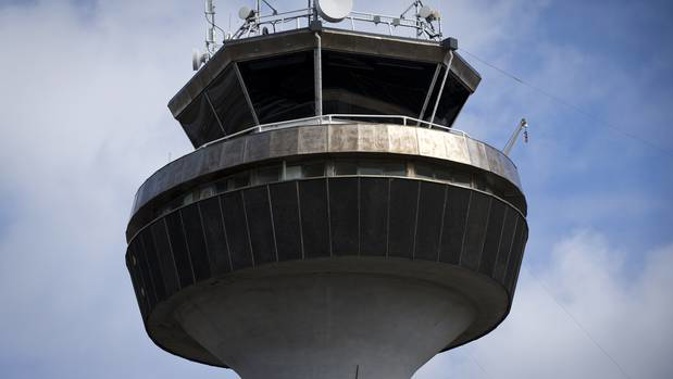
It's the job that pays more than $150,000 a year on average.
According to Airways, New Zealand's air navigation service, an air traffic controller can earn in excess of $95,000 in their first year.
Yet despite the lucrative income, finding the right candidates to fill the role across New Zealand airspace isn't as easy as you might think.
According to the Australian Taxation Office last year the role of an air traffic controller entered Australia's top 10 earners pool, news.com.au reports.
Starting salaries for graduate roles in the high-pressure job begin at a handsome $99,898 and on average, controllers working across New Zealand and Australia can earn $141,795 a year.
It's a gig where you don't need a degree or any experience in a similar field - just pass a test and you're on your way.
But while it may sound simple, the test comes with its challenges and only about three per cent finish the document correctly.
Earlier this month, Airservices Australia began searching for more air traffic controllers who hold Australian or New Zealand citizenships or hold Australian Permanent Residency status.
"Air traffic controllers manage the safe and orderly flow of aircraft into, out of, and between airports throughout Australia and with overseas regions adjoining Australian airspace," the job description said.
"This is a rewarding role that requires a high level of commitment and responsibility.
"In addition to the daily management of routine air traffic, controllers also provide information and assistance to pilots if they experience an in-flight emergency."
Last week, passengers at Sydney Airport faced extensive domestic flights delays and cancellations due to understaffing at air traffic control.
A spokesman told news.com.au that some services had to be cancelled after fewer air traffic controllers were able to work on a scheduled late shift.
The Airservices Australia spokesman said they were working to get replacement staff in to cover "unexpected staff absences".
Last year, Airservices Australia's Charles Robinson, who works as air navigation services training manager, had 1180 people apply for its training program, but only 30 were accepted.
"Statistically that's less than 3 per cent of those who apply for the role," he said.
"I think the flying public demand a very high level of safety, and we're very good at our jobs."
In New Zealand, Airways simply can't find enough trained air traffic managers.
"We're looking for people who are conscientious and detail-oriented, individuals who are comfortable working under pressure, have the ability to be calm under pressure - and display calmness, even if their feet may be paddling hard under the water," Judy McGrody, told The Herald, as Airways' manager of talent, acquisition and retention.
Here a new controller typically earns more than $95,000 in their first year and experienced controllers can earn up to $180,000 annually. This includes salary, allowances, company superannuation contributions and other payments.
But the lack of controllers in parts of New Zealand has resulted in employees working on scheduled days off, causing flight delays and fatigued staff.
And this is due in part to the tiny pool of talent from which Airways has to recruit.
Out of the meagre pool of applicants qualified to apply each year under two per cent will be forwarded to training.
"Of the 600 to 700 that will apply, we'd look to have about 24 people to the assessment centre and then 12 into training," McGrody says.
Like with New Zealand recruitment, Australian applicants cannot study for the air traffic control test, which often sees just three in 100 pass.
The reason for this is the unique skillset and type of spatial reasoning that the job requires. It requires type of spatial awareness that is almost impossible to train for.
The application starts online, where you will be given a series of tests to assess your logical and numerical reasoning, pattern recognition, processing speed and ability to visualise in three dimensions.
The shape-based questions measure your ability to problem solve, and think conceptually as well as analytically.
Here are four sample questions from the test courtesy of air traffic training company SHL:
/arc-anglerfish-syd-prod-nzme.s3.amazonaws.com/public/B7WGC2XS7RCMBCG5GY55PA73GA.jpg)
Can you guess what follows next? Answers below. Source / HLS
In each example given, you will find a logical sequence of five boxes. Your task is to decide which of the boxes completes this sequence. To give your answer, select one of the boxes marked A to E. You will be told whether or not your answer is correct.
(Answers at the bottom of the article, no peeking!)
Mr Robinson said his job brought different challenges every day, whether it was a closed runway or an emergency of some description.
"If you like doing the same thing repetitively, this is not for you," he told Fairfax Media last month.
What's it like being an air traffic controller?
Scott Herbert, a veteran air traffic controller based in Christchurch, considers his job the best in the world.
"I've been controlling for 25 years and it's just a buzz going to work knowing that every day is going to be different. The weather might change, you might have a busy period, a really quiet period - anything could happen," says Herbert.
"And you get paid to look out the window at a cool view depending on where you are in the country."
Herbert became an air traffic controller straight out of school. He's always had an interest in aviation and previously held a pilot's licence.
At 18 he went through training which lasted two-and-a-half years. Today, to get an air traffic licence trainees have to be 21, and training now takes 18 months.
"We're the forgotten people in a way," Herbert says. "Airplanes take off and land all the time and no one really thinks about air traffic, and that's kind of cool because airplanes take off and land hundreds of times a day, safely, because of us."
Answers:
If you are still interested and you think you've got what it takes, here are the answers to the questions above:
/arc-anglerfish-syd-prod-nzme.s3.amazonaws.com/public/INBLGCRPJ5FIBDAR24VNFR5ZGY.jpg)
Answers. Source / HLS
- additonal reporting by Aimee Shaw
Take your Radio, Podcasts and Music with you









